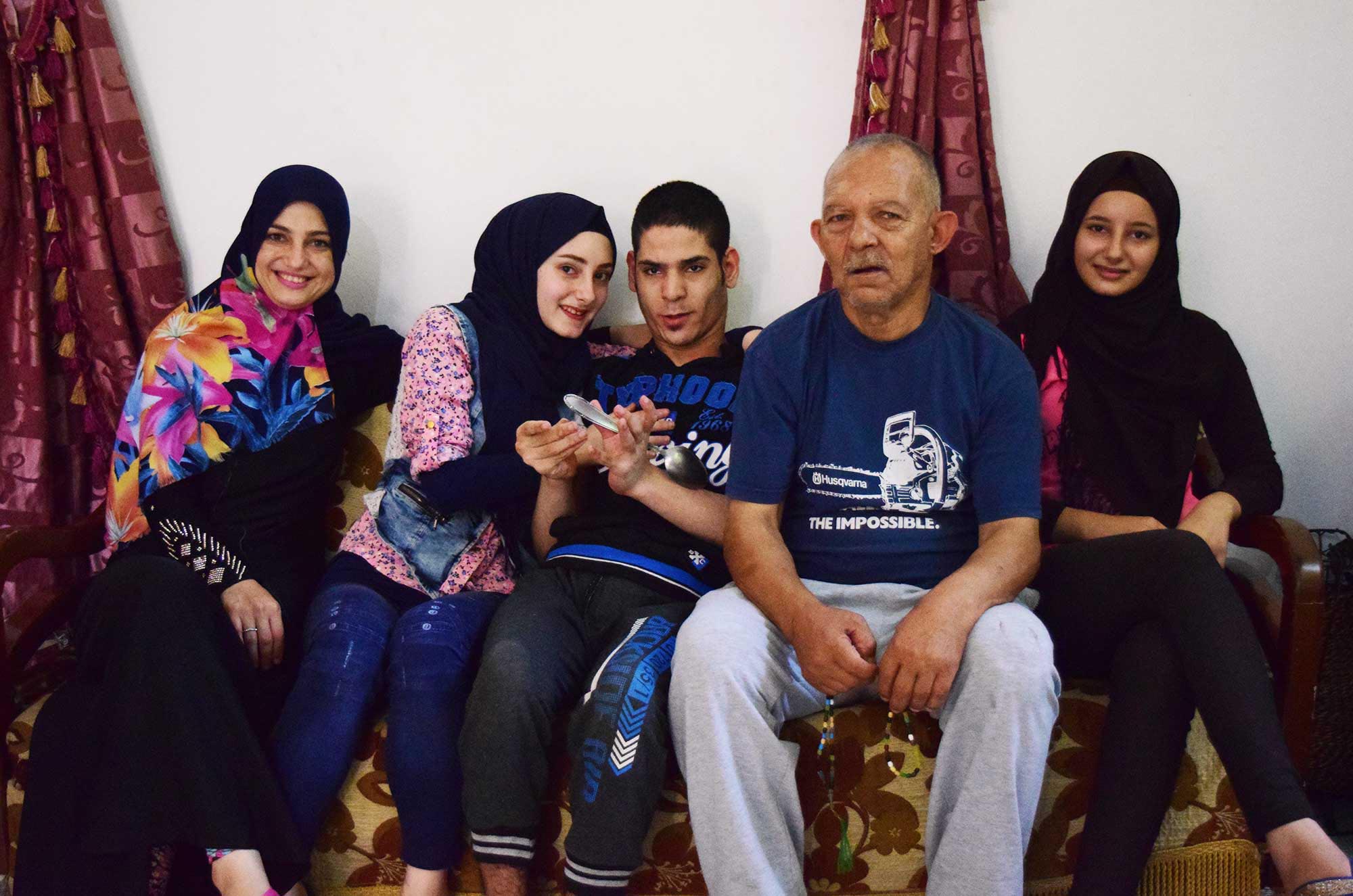Aug, 2017
Samir spends his days collecting and selling recyclable materials near his home at Rashidiyeh refugee camp.
It’s difficult for him to find a job, because in Lebanon many sectors are off-limits to Palestinian refugees. As such, Samir struggles to support his wife and four children.
The family’s financial troubles worsened when Samir and his son Mohammed were injured by a grenade in the 2006 Lebanon war. Ever since that traumatic experience, Samir and his son suffer from physical disabilities, and the whole family’s lives changed drastically. And, in the same year, they took in a young orphan named Salim, who also has a disability.
Despite their hardships, the family has been resilient. Mirna, Samir’s eldest daughter, tends to her father and brother while her mother works long shifts as a maid in Tyre. “Mohammed’s two legs were amputated, and my father’s hand and back were permanently injured,” said Mirna.

Community-Based Initiatives Earns Family Income
Last year, Anera approached the family for support in the solid waste management project, which aims to improve waste management systems, advance health and hygiene, and to produce sustainable water and sanitation for health (WASH) practices. It’s implemented in partnership with UNICEF and with funds from the Canadian government.
Immediately, Samir encouraged Mirna to start recycling household waste and to get her friends involved. Anera provided participating households with two bins: one for plastic, tin and aluminum and one for all other discarded waste.
“My friends and neighbors know that I gather all our recyclables. When I collect a sizable amount, it’s taken by a formal waste collector who works at a sorting facility in Tyre.”
Anera has implemented the project in two Palestinian refugee camps, Nahr El Bared in the north and Rashidiyeh in the south. The project engages 6,000 households in both camps and improves the livelihoods of local scavengers through capacity-building and in-kind support.
Out of more than 6,000 households surveyed for the project, roughly 97 percent showed a willingness to participate despite not having any previous training. In households where sorting bins were distributed, like Mirna’s, 87 percent of households are now properly sorting waste and either reusing, selling, or passing it to scavengers.
“I sell the recyclables for a different value each time, depending on the weight, type and quantity,” says Mirna. “On average, I support my family with an additional $75-$100 from selling recyclables, and we use this to buy medical supplies for our brother Salim.”
There are many other vulnerable families living in Rashidiyeh. Through the solid waste management project, families are finding new, innovative ways to make a living.

